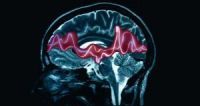Genetic Association between Epilepsy, Other Neurodegenerative Disorders
By observing mutated flies, researchers at the University of Iowa found the same pathophysiological pathways are relevant to epilepsy and several neurodegenerative disorders.

By observing mutated flies, researchers at the University of Iowa (UI) found the same pathophysiological pathways are relevant to epilepsy and several neurodegenerative disorders.
The details of their findings were published in the July 14 online issue of the Proceedings of the National Academy of Sciences of the United States of America (PNAS)
By using Drosophila, John Manak, an associate professor of biology at UI, and his colleagues observed the effects of prickle gene mutations, which made the flies susceptible to seizures.
The researchers noted a change in the cells’ ability to transport molecules by affecting neuron’s axon growth. These axons are responsible for transferring information, and modifying the levels of the 2 types of prickle genes resulted in an onset of epilepsy, according to a UI statement.
The investigators also reported that reducing either of 2 Kinesin motor proteins responsible for anterograde vesicle transportation could suppress seizures.
“We were able to use two independent assays to show that we could suppress the seizures, effectively ‘curing’ the flies of their epileptic behaviors,” Manak said in a statement.
Based on their findings, the researchers claimed they discovered a previously unknown pathway active in seizure disorders.
The UI statement claimed Previous research has associated the same pathway with other neurodegenerative diseases, including Alzheimer’s disease and Parkinson’s, according to IU.
“Indeed, patients with inherited forms of Alzheimer’s disease also present with epilepsy, and this has been documented in a number of published studies,” Manak said.
As part of their report the team noted that amyloid precursor protein and presenilin are associated with Alzheimer’s disease and prickle gene mutations affecting vesicle transport for epilepsy patients.
“If this connection is real, then drugs that have been developed to treat neurodegenerative disorders could potentially be screened for anti-seizure properties, and vice versa,” Manak stated.